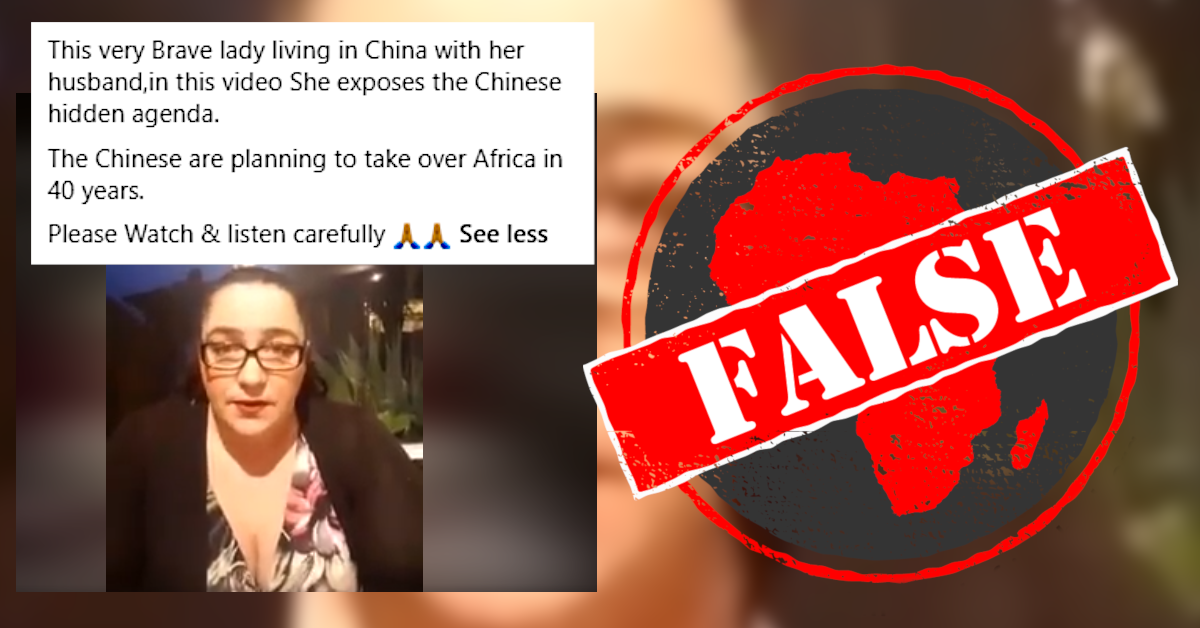“JUST IN: Those In Quarantine Have Started Having Sex With Each Other – Minister of Health Raises Alarm.” That’s the headline of an article on Zebra News, a Nigerian website, shared widely on Facebook.
According to the article, Dr Diana Atwine, the Ugandan health ministry’s permanent secretary, said Ugandans under quarantine “have even begun having sexual affairs”. This is described as “dangerous” in the efforts to contain the disease Covid-19.
The headline contradicts the article itself, in attributing the quote to the minister of health, Dr Jane Ruth Aceng, not Atwine. But did anyone from the health ministry make a statement like this?

Quarantine measures were announced on 18 March, before Uganda had any confirmed Covid-19 cases. They were intended to stop the spread of the disease by isolating people at risk of having contracted it.
As at 22 April 2020 231 people were in“institutional quarantine” in Uganda, with 861 already discharged by the health ministry.
Zebra News reported on 15 April that Atwine said people quarantined in hotels had jeopardised the quarantine efforts by moving “to rooms of others in the hotels where we have placed them” in order to engage in “sexual affairs”. Atwine supposedly made these claims “during a recent interview on Radio One talk show”.
The photo in the Zebra News article is unrelated. A reverse image search reveals that it shows patients in a makeshift hospital in Wuhan, China, not Ugandans in quarantine.
There is no evidence that Atwine suggested Ugandans are having sex with one another in quarantine.
The secretary does not mention it on her Facebook or Twitter pages. And the health minister, Jane Ruth Aceng, has not said anything like it on Twitter or elsewhere.
The health ministry has also not made any statements about this being a concern in its updates on Covid-19.
Zebra News attributes the statements to an interview Atwine is supposed to have given on Uganda’s Radio One. But Radio One does not air any talk shows, according to a list of shows on its website. The broadcaster also did not mention an interview with Atwine on its Twitter page, or run the story with other news on its website.
There is no evidence that the Ugandan ministry of health is concerned about the sex life of those in quarantine during the Covid-19 outbreak. – Keegan Leech
According to the article, Dr Diana Atwine, the Ugandan health ministry’s permanent secretary, said Ugandans under quarantine “have even begun having sexual affairs”. This is described as “dangerous” in the efforts to contain the disease Covid-19.
The headline contradicts the article itself, in attributing the quote to the minister of health, Dr Jane Ruth Aceng, not Atwine. But did anyone from the health ministry make a statement like this?

Covid-19 in Uganda
Quarantine measures were announced on 18 March, before Uganda had any confirmed Covid-19 cases. They were intended to stop the spread of the disease by isolating people at risk of having contracted it.
As at 22 April 2020 231 people were in“institutional quarantine” in Uganda, with 861 already discharged by the health ministry.
Zebra News reported on 15 April that Atwine said people quarantined in hotels had jeopardised the quarantine efforts by moving “to rooms of others in the hotels where we have placed them” in order to engage in “sexual affairs”. Atwine supposedly made these claims “during a recent interview on Radio One talk show”.
The photo in the Zebra News article is unrelated. A reverse image search reveals that it shows patients in a makeshift hospital in Wuhan, China, not Ugandans in quarantine.
No evidence of statement or interview
There is no evidence that Atwine suggested Ugandans are having sex with one another in quarantine.
The secretary does not mention it on her Facebook or Twitter pages. And the health minister, Jane Ruth Aceng, has not said anything like it on Twitter or elsewhere.
The health ministry has also not made any statements about this being a concern in its updates on Covid-19.
Zebra News attributes the statements to an interview Atwine is supposed to have given on Uganda’s Radio One. But Radio One does not air any talk shows, according to a list of shows on its website. The broadcaster also did not mention an interview with Atwine on its Twitter page, or run the story with other news on its website.
There is no evidence that the Ugandan ministry of health is concerned about the sex life of those in quarantine during the Covid-19 outbreak. – Keegan Leech
Republish our content for free
For publishers: what to do if your post is rated false
A fact-checker has rated your Facebook or Instagram post as “false”, “altered”, “partly false” or “missing context”. This could have serious consequences. What do you do?
Click on our guide for the steps you should follow.
Publishers guideAfrica Check teams up with Facebook
Africa Check is a partner in Meta's third-party fact-checking programme to help stop the spread of false information on social media.
The content we rate as “false” will be downgraded on Facebook and Instagram. This means fewer people will see it.
You can also help identify false information on Facebook. This guide explains how.





Add new comment